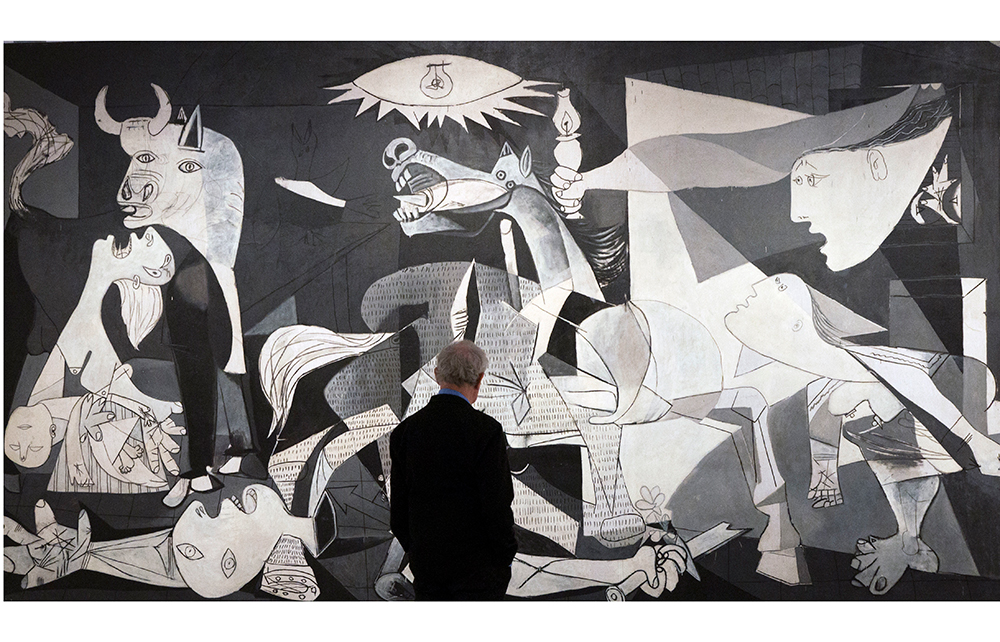For those who consider themselves traditional liberals (full disclosure: such as me) Sunday’s first episode of Simon Schama’s History of Now may have felt like a somewhat dismaying exercise in nostalgia. As Schama ran through a familiar anthology of 20th-century liberalism’s greatest hits, we were taken back to a happier, more recognisable world of clearly demarcated goodies and baddies where democracy would inevitably mean the triumph of our own beliefs and there was little that couldn’t be fixed by art ‘speaking truth to power’.
The programme’s starting point, as you might imagine, was the Spanish Civil War, described by Schama as a ‘great battle between democracy and autocracy’ – rather than, say, two autocracies. In this case, the truth-speaking art was Picasso’s ‘Guernica’, which Schama movingly analysed without mentioning the awkward fact that the power it spoke truth to took no notice. Instead, the painting now became the archetype for other art that shaped the post-war liberal commitment to the individual, from Orwell’s Nineteen Eighty-Four to Pasternak’s Doctor Zhivago.
Discussing Orwell, Schama juxtaposed Oceania’s Two Minute Hate sessions with rallies of Trump supporters chanting ‘Lock her up!’, because both demonstrate ‘the glee of hatred’. Most of the time, though, he concentrated on Eastern Europe, with particular reference to Czechoslovakia where, as a visiting student in 1965, he sensed the ‘angry fatigue’ with communism that inspired the Prague Spring three years later.
Schama didn’t mention the awkward fact that the power ‘Guernica’ spoke truth to took no notice
His stirring account of what followed – the Russian invasion, Havel’s heroics, the 1989 Velvet Revolution – saw the programme at its best. But this was perhaps not surprising, given how neatly these events fitted Schama’s desired paradigm. Here, unmistakably, was a ‘regime of lies’ losing out to ‘people who just wanted to get their own lives back’.







Comments
Join the debate for just £1 a month
Be part of the conversation with other Spectator readers by getting your first three months for £3.
UNLOCK ACCESS Just £1 a monthAlready a subscriber? Log in